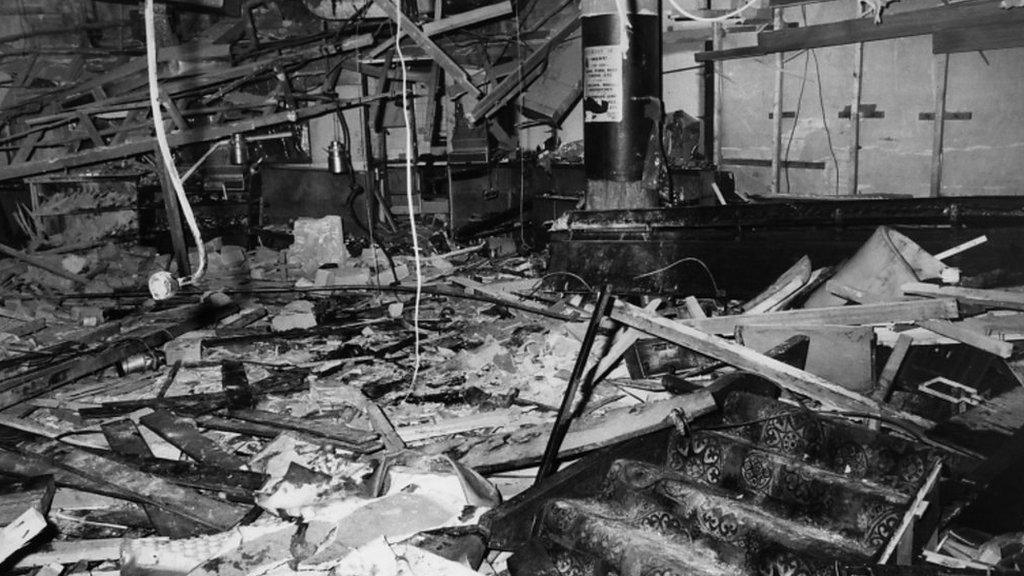Birmingham pub bombings: Government funding request rejected
- Published
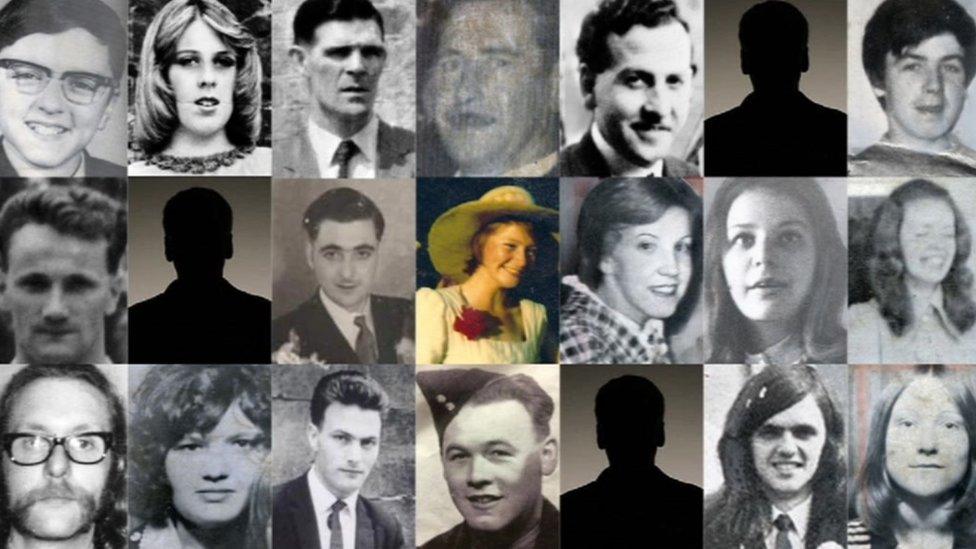
Twenty-one people were killed in the Birmingham pub bombings. Photographs of three of the victims have never been released
The government has refused a request from relatives of the Birmingham pub bombings victims to pay their legal fees.
Inquests into the deaths of 21 people are due to be held next year.
Families had hoped to secure an arrangement mirroring the Hillsborough inquests, where costs incurred were met by the government.
Home Secretary Amber Rudd told families their request had been refused, but legal aid may still be granted.
Families have called for confirmation of legal aid "by the end of the week".
More on this story and others in Birmingham
Q&A: Birmingham bombings inquests reopen
Relatives of the victims wanted their lawyers, who have so far worked for free, to be paid out of public funds, like police, for work on inquests into the 21 deaths.
Legal firm KRW LAW LLP said campaigner Julie Hambleton, whose sister Maxine was killed in the 1974 atrocity, had received a letter from Ms Rudd confirming the refusal.
But, a spokesman for the firm said Ms Rudd was "sympathetic" and supported the families' legal aid application.
"We are saying that we and the families want written assurance by the end of the week from the Legal Aid Agency confirming that we have legal aid," he said.
Ms Hambleton, said she was disappointed by the decision but said learning the minster supported their legal aid bid "hit a raw nerve of everything we've been fighting for".
"It meant an awful lot," she added.
Louise Brookes, whose brother Andy died in the 1989 Hillsborough disaster, had backed the campaign.
She met Ms Hambleton earlier this year, external and told her she felt legal funding had been crucial in securing unlawful killing verdicts.
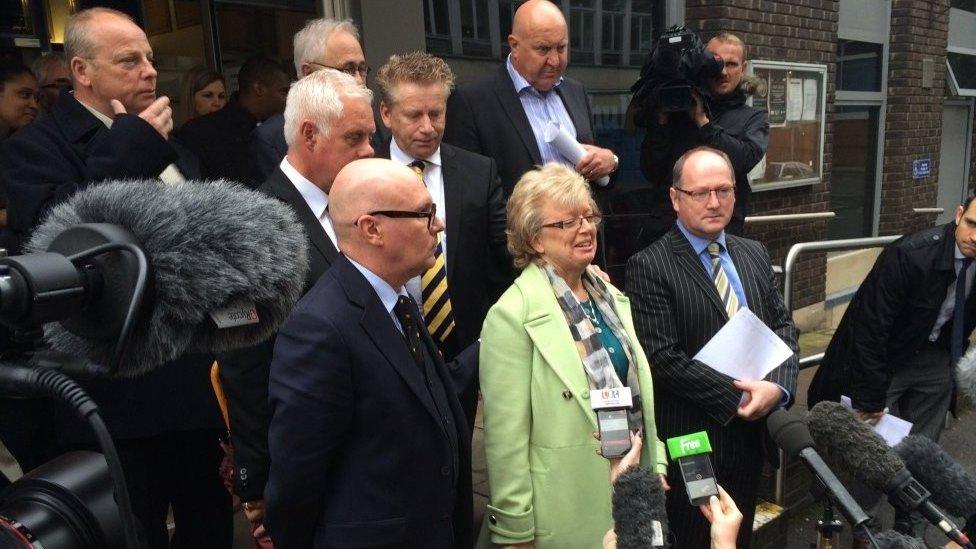
Mrs Hambleton received a letter from the government as well her legal team
In her letter, Ms Rudd said the legal aid application should not be means tested and she would discuss this with the Lord Chancellor.
A Home Office spokesperson said Ms Rudd believed there was a "strong case" for the families to receive legal aid, but it was up to the Legal Aid Agency to approve applications.
"It is right that the families bereaved by the Birmingham pub bombings are represented at the forthcoming inquests, and legal aid exceptional funding will enable this," it said.
The inquests are expected to be heard in full next year after a preliminary hearings next month.
The Labour party has said families should receive the same level of funding for legal representation as police at inquests involving officers, a call repeated by the chief coroner for England and Wales in July.

Pub bombings: What happened?
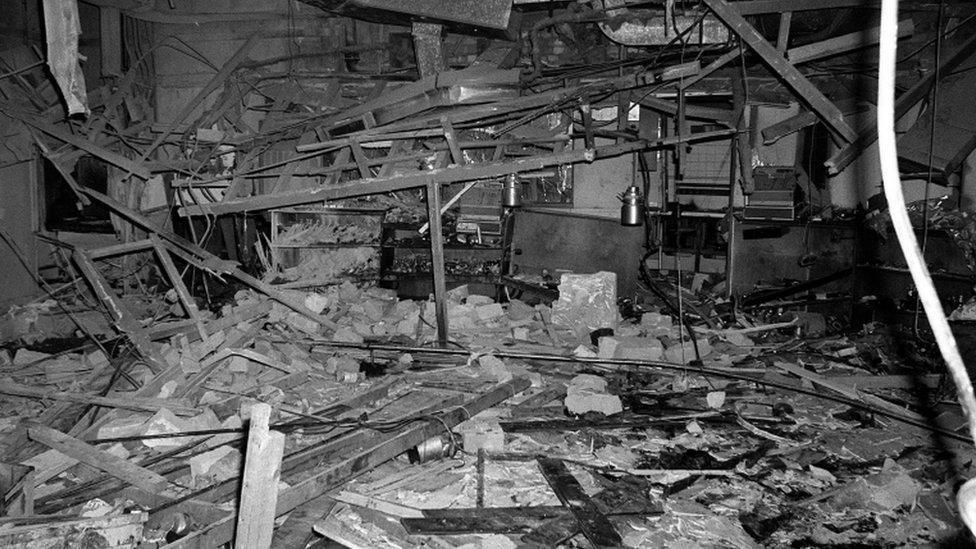
At 20:18 GMT on 21 November 1974, a bomb exploded in a duffel bag in the Mulberry Bush pub at the base of the city's iconic Rotunda building, killing 10 people. Two minutes later, a second bomb went off in the Tavern in the Town, leaving 11 more dead
A total of 222 people were also injured in what was, at the time, the worst terrorist atrocity on English soil
Six men who were on their way to the funeral of an IRA member were arrested and later jailed. They claimed in court confessions were beaten out of them
After two appeals, the Birmingham Six, as they became known, were freed in 1991 - nearly 17 years after being convicted
No-one has ever been brought to justice for the 21 murders, although members of the IRA are believed to have been responsible

- Published26 August 2016
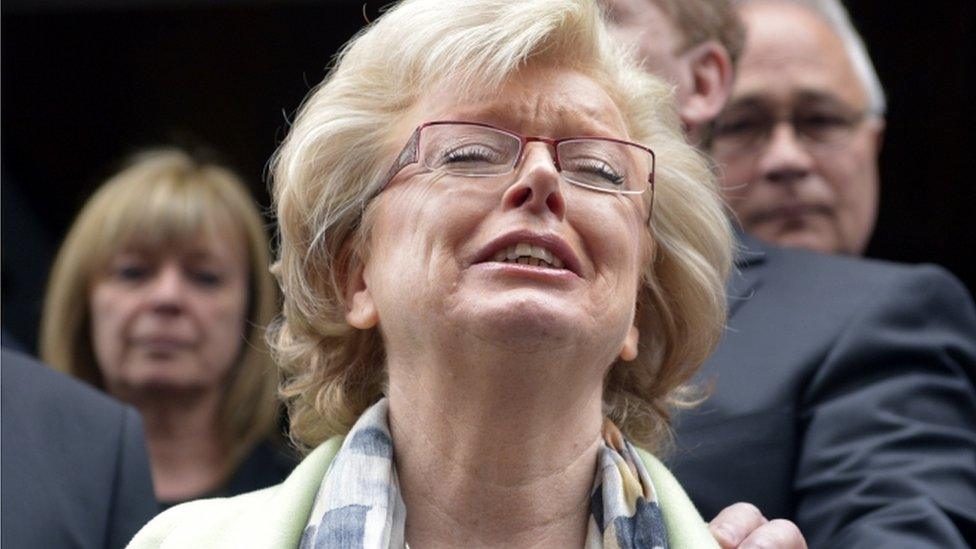
- Published28 July 2016
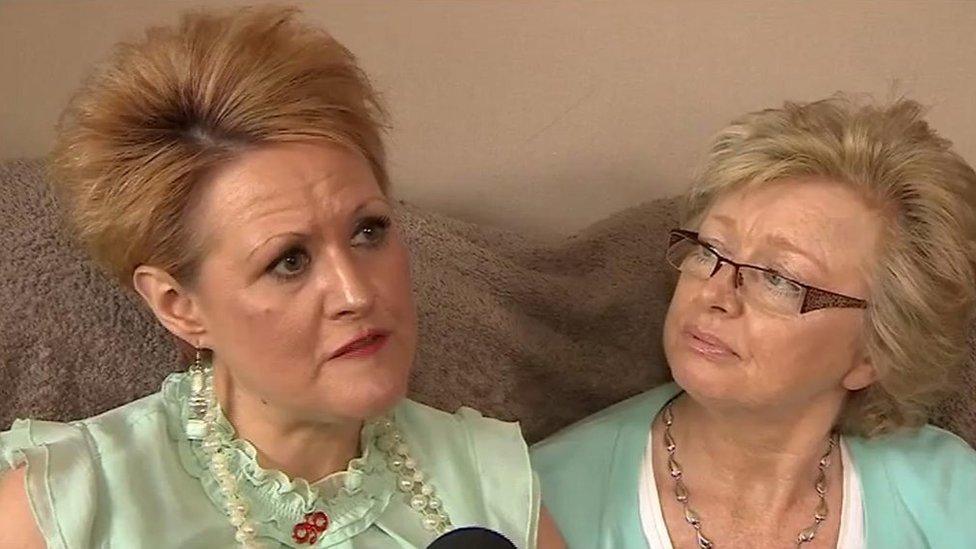
- Published14 July 2016
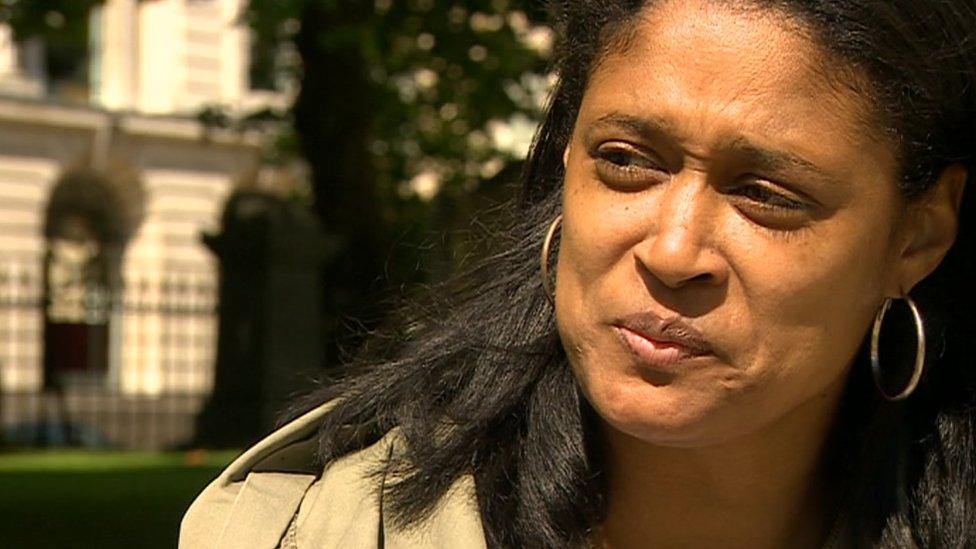
- Published1 June 2016
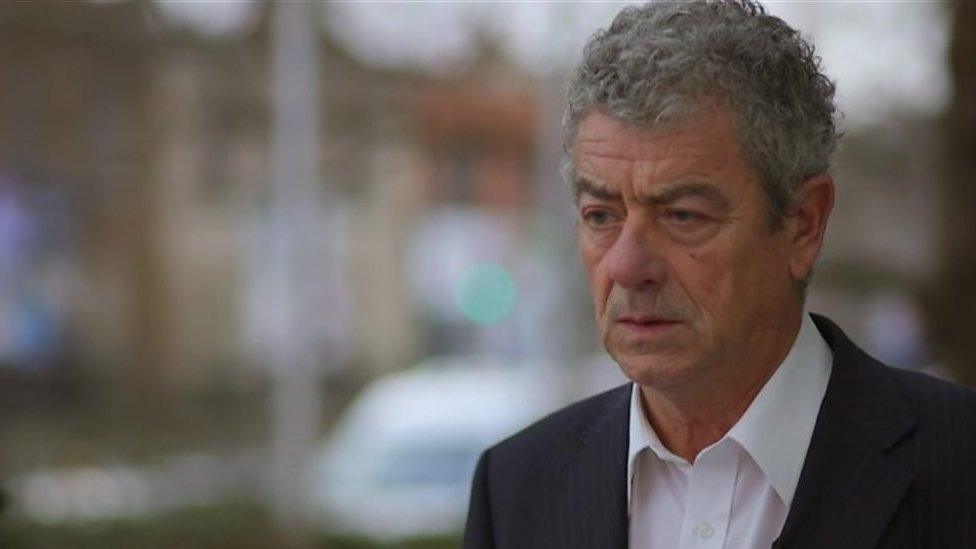
- Published1 June 2016

- Published1 June 2016
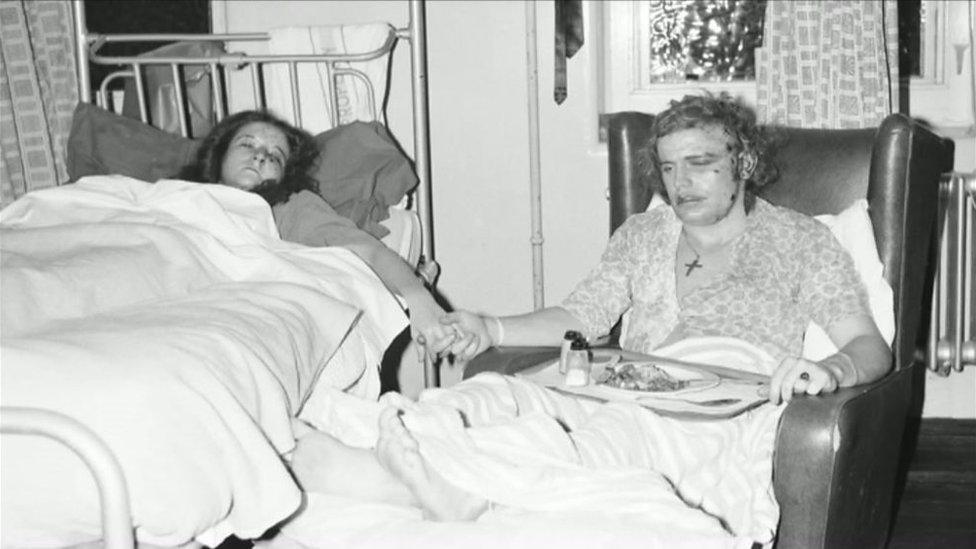
- Published10 July 2017
